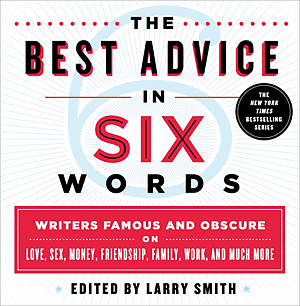
How would you use commas to punctuate a list of three or more items in a conversational list? For instance:
1. Manny
2. Moe
3. Jack
In conversational English, would you write:
A. Manny, Moe, and Jack
or
B. Manny, Moe and Jack
?
As a fan who loves and respects the English language, it’s alarming to me that a rule has been developed in recent decades by journalistic institutions that is now being blindly followed by people who basically believe what they’re told to believe, unquestioningly doing what they’re told. The rule happens to be completely illogical, and really, really, really irritates me. I’ve gotten into heated debates over this with otherwise good writers, who do what they do simply because the rule says so.
The rule insists that the correct answer is:
B. Manny, Moe and Jack
I challenge this rule. Why?
Commas, along with other forms of punctuation like semicolons, quotation marks, parentheses, and so on, are logical operators that we use to communicate clearly and accurately. A logical operator is basically a device that allows us to connect statements into more complicated compound statements. When we use commas as delimiters in a list of three or more items, it makes no sense to replace the final comma with “and”. The word “and” is not always a logical operator. In the Manny/Moe/Jack sentence, it simply signifies the conclusion of the thought.
If you’re a computer programmer, you realize how critical something as seemingly insignificant as a comma can be. If your syntax isn’t logical and consistent, the program just won’t work.
Here’s an example. Let’s say I like three things:
1. Macaroni and cheese
2. Chocolate syrup
3. Spaghetti with meatballs
I’ve used the numbered list to clearly separate the three items for you. There’s only one way to interpret the list.
Now, if I were to list those items to you in conversational English, it’s my responsibility as the writer to do so without requiring too much interpretation on your part. I would say:
I like macaroni and cheese, chocolate syrup, and spaghetti with meatballs.
It should be very clear that I’m listing three things for you, and it’s quite clear what those three things are.
The silly rule, on the other hand, claims its acceptable to say:
I like macaroni and cheese, chocolate syrup and spaghetti with meatballs.
WHY IS THAT ACCEPTABLE??? Chocolate syrup and spaghetti together is fantastic, but with meatballs? Come on.
Realize that the human brain is an extremely advanced mechanism. It remarkably takes mistakes like typos and misspellings, and then subconsciously reassembles them into a digestable thought. But this natural human skill should never be used as a crutch for the writer. The “comma rule” is such a crutch; it expects, and literally demands, that the reader take something inherently nonsensical and make sense out of it.
If you’re a writer who abides by this popularized “comma rule”, be aware that you’re expecting the reader to read your mind. While you may be a very nice person on the inside, you’re unfortunately displaying irresponsible, discourteous, and downright sloppy communication skills. No matter what you’ve been told, and no matter who you work for.
I’ve made my stand, I’ve said my peace, and I rest my case.
“One day a cop pulled me over for running a Stop sign. He said, ‘Didn’t you read the sign?’ I said, ‘Yeah, but I don’t believe everything I read.'”
— Steven Wright












i agree with you about the final comma in a list. check out the following pages for supporting evidence, and a quiz for fun:
Rules For Comma Usage
Punctuation Quiz
Ha! Very cool!
Great quiz. I got 82% the first time, due to a slight hierarchical curve ball on one of ’em (the professors). It then dawned on me, and the second take was 100%.
Great article on the Rules For Comma Usage as well. So that’s what it’s called: the “serial comma”, or “Oxford comma”. Learn something every day. They even used macaroni and cheese as an example too! Funny. It’s encouraging to know that there are others out there fighting the good fight, or at least offering an argument against the proactive bastardization of our language.
By the way, note how the author punctuates the instructions for the quiz itself.
In the Dangling Participles section of her killer book “Sin and Syntax”, Constance Hale throws out another great example of how the elimination of the serial comma can hang a sentence so far out to dry it’s laughable:
“I’d like to dedicate this book to my parents, Ayn Rand and God.”
I try to follow grammar rules as much as I can. However, I’m not a perfect writer and didn’t stick with college long enough to really take a lot from it. I stumbled across this article while trying to refresh my memory on this “comma debacle.” After reading above your arguments make sense to me but I’m writing a resume and I still think I’m going to use what’s widely practiced as correct grammar. Being that some employers could be more critical than others. I’d hate for a comma, or lack there-of, to cost me a good job opportunity. Thanks for a good read and forgive my possilbe run-ons or missued punctuation in this reply! 😉
The reason for the deleted comma is for journalism. Anything to shorten the copy is acceptable
Thanks for your comment! → Here’s another recent argument for the serial comma.